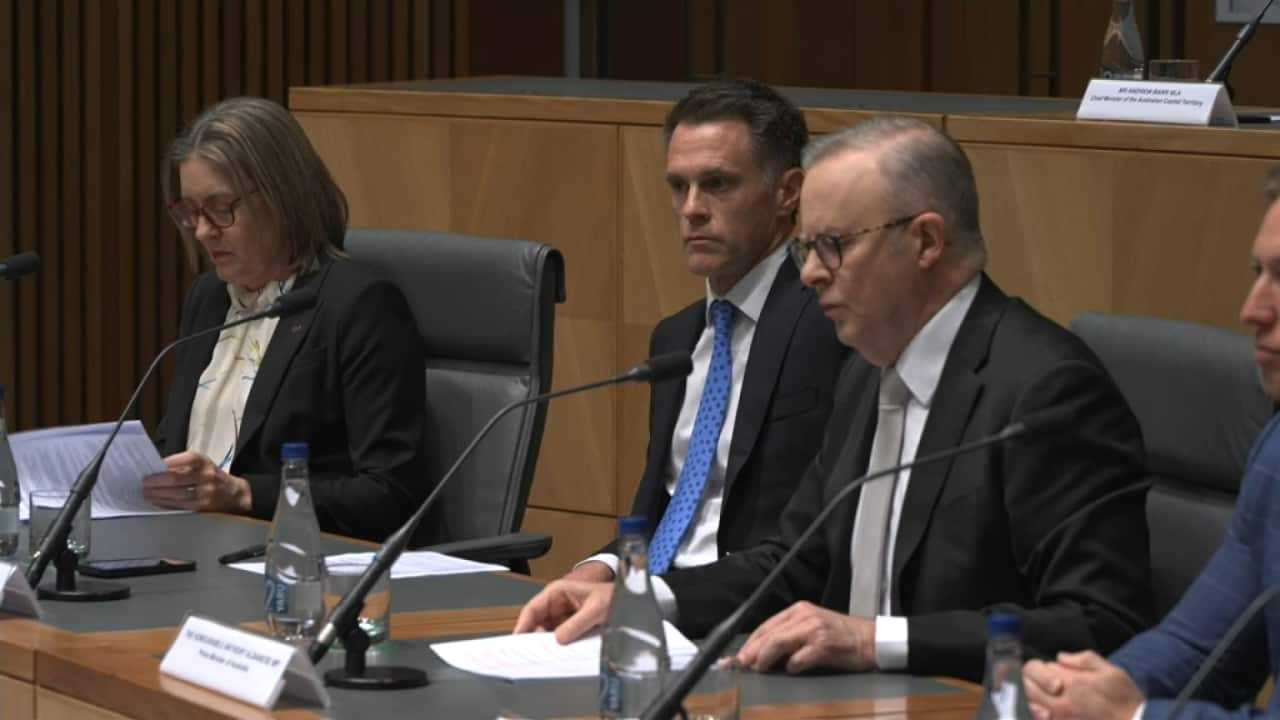TRANSCRIPT
In Sydney's North, St Mary's House Services offers refuge to up to four women and their children fleeing family and domestic violence eah night.
Like many services across the country, Chief Executive Yvette Vignando says demand has at St Mary's has been high.
"We are experiencing a national crisis in demand for support services. We don't know whether that's because there's more domestic and family violence, but what we do know is that more women are seeking help and needing support, and it's so important that we provide that support to save more lives."
Forty-seven women have been violently killed in Australia this year, according to the Counting Dead Women project.
What's been labelled as a national crisis has a national response, the Prime Minister announcing that National Cabinet have agreed on a way forward.
"We must act to ensure women are safe. These horrific and disturbing deaths and vile violence must be prevented. Achieving this demands action and change at every level of government."
The headline figure is $4.7 billion - to be rolled out from July 1st next year.
Almost four billion of that is going towards legal services over the next five years - a 25 per cent increase on previous funding levels.
It will focus on funding services responding to gender-based violence, and will provide ongoing funding beyond the five years, aiming to improve certainty for the legal services sector.
Executive Director of Legal Aid Katherine McKernan welcomes the move.
"This is a really positive and welcome announcement. It's really pleasing to see the government acknowledge the critical role that legal assistance plays, particularly in keeping victim survivors safe."
But First Nations legal services fear they have been left behind - with no specific funding allocated for their services.
And $702 million will go towards frontline services across the next five years - funded 50 per cent by the commonwealth, and 50 per cent by states and territories.
Australia's National Research Organisation for Women's Safety Chief Executive Dr Tessa Boyd-Caine welcoming the move.
"This is such a welcome announcement today. It's an incredible reflection of the momentum as a country that we've been maintaining through this year, and that momentum is long overdue in a context of levels of domestic, family and sexual violence that have been at crisis for a lot longer than this year.”
Exactly what that $700 million will fund is unclear.
Prime Minister says there are four key areas of focus.
"Supporting the critical work of frontline services, turning our eyes on perpetrators to stop violence from escalating, providing more support for children and young people who've experienced violence, and tackling the impacts of alcohol on violence."
The allocation of funds to be decided on by the states and territories to where they see the most need.
The Opposition pointing out the government is falling behind on other domestic violence commitments.
Labor promised to put in place 352 frontline domestic violence workers by June this year, providing funding for states and territory for the positions.
As of August 31st, only 198 full time equivalent places had been filled.
Mr Albanese says the states are committed to filling the positions.
"We're working constructively with the states and territories. We provided, provided funding for 500 additional frontline workers, and I know that every single Premier and Chief Minister is committed to delivering that.]
Deputy Liberal Leader Sussan Ley says it's not good enough for the PM to pass on the blame.
"We had a commitment to deliver 500 frontline workers. Now where are they? The government must do better. The states are saying the policy settings aren't right. The government is saying we've done our job. No, they haven't”
And that funding will flow too slowly.
"Not one dollar of this funding will start to flow until the middle of 2025 - that is 10 months away. Sadly, on the current trajectory of women losing their lives, being killed by a man, we would see 40 more women lose their lives before a dollar of this money is spent.”
Whilst Greens Senator Larissa Waters says it's not enough money to tackle the crisis.
"I fear, again, that the Prime Minister has low balled this issue and thinks that people will be satisfied with that. Well, no; women can see through the spin, and we're sick of being put at the back of the pack."













